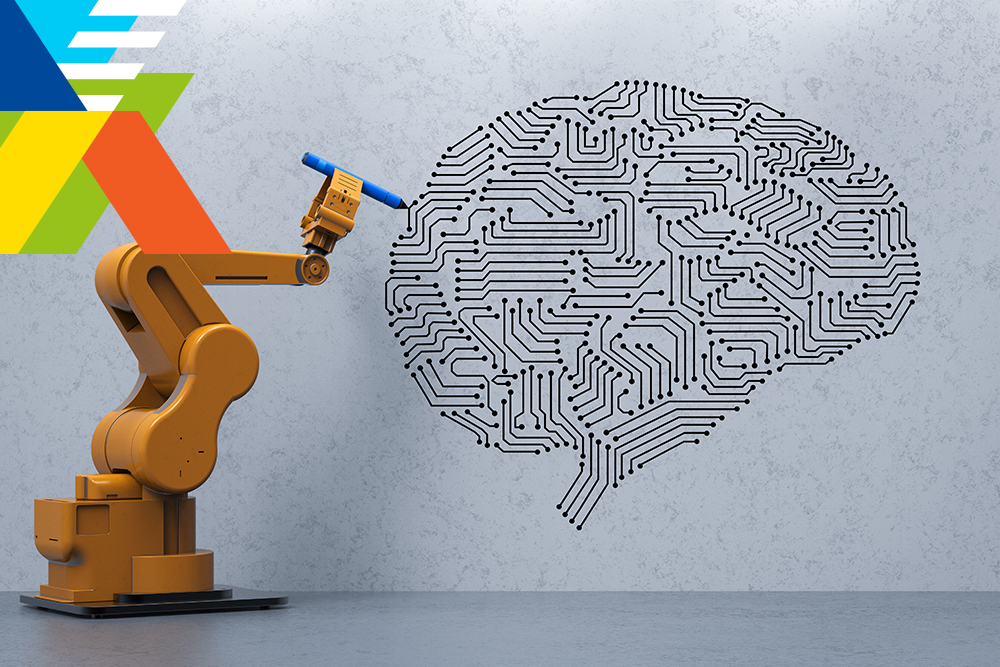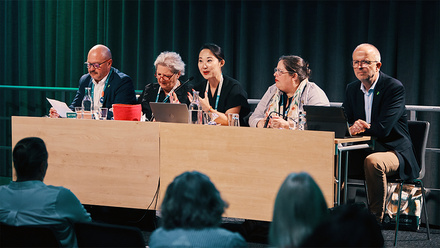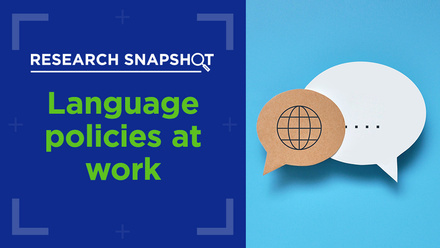AI in international education: redefining who ‘we’ are

The fifth article in the 2020 Conversation Starter series asks us to pivot to the future and consider where the creative pathways we're currently forging might lead us. One increasingly likely scenario is one in which international offices may no longer be staffed exclusively by humans. How might this impact the future of internationalisation?
In the fall of 2017, a computer programme developed by the DeepMind research company’s machine learning algorithm AlphaZero won a chess tournament. It consisted of 100 games played against the world’s then-best champion chess programmes. Computers have been beating humans at chess since 1997, so the fact that an artificial intelligence (AI) programme won an all-AI tournament is not the headline. What is striking is that, in the 2500 years since the game was invented, and in the 50 or more years that computer programmes have been playing chess, no human or machine had ever employed a strategy like AlphaZero did, with a "machine-learning approach" that relied on "no human input apart from the basic rules of chess".
I start with this observation to remind us that we are indeed on the edge of an era where we should expect AI to replace the human factor in many domains and machines to surprise us with what they can learn to do strategically as well as tactically.
What’s ahead when it comes to the dynamics between artificial intelligence and international educational exchange?
Meanwhile, the year 2020 has introduced unprecedented challenges – medical, social, financial and economic – for human beings around the world in the form of the COVID-19 global pandemic. Some of these challenges will be vanquished by AI. Others will still require actions and activity that are uniquely human. Across many societies, powerful grassroots movements to address deep, unresolved matters of racial inequity and social injustice have highlighted the many ways in which social relations are deeply fraught and all manner of opportunities are unequally available. And AI is already proving susceptible to learning racial prejudice and then applying it in ways that were unforeseen in Silicon Valley. For example, early models of AI that developed sensors to dispense soap for hand washing did so only to hands of a particular colour.
Indeed, at a moment when people and societies are struggling to assure their health, vitality and equity, and where technology is stepping into the breach – particularly to connect people as international mobility is dramatically curtailed – it’s timely to ask: what’s ahead when it comes to the dynamics between artificial intelligence and international educational exchange?
Uncertain outlooks
Of course, practically anything one can forecast today is likely to be wrong in some, if not many, respects. We may not imagine enough or think far enough outside the box or realise that the pace of innovation and change is far faster – or slower – than that to which we have become accustomed. Perhaps that is why there are so few studies of AI and international education. Indeed, no matter how one configures a Google search of "AI" and "international education", only a handful of references result. And no matter how I tried to tease a genuine connection in my own online search with these terms, I came up empty.
What I did learn is that there are robust international conversations about the role of AI in education and there are a growing number of global conferences on AI that include educators. And while research papers have been published about when and in which grades robots could replace teachers, there are no clear indications that we will soon be in an era where AI and virtual reality will replace, for example, international student mobility.
The COVID-19 pandemic has underscored the importance of the role that senior international officers and their offices play
Most pandemics end. The current one is the 12th in the century-long history of the Institute of International Education (IIE), where I serve as President and CEO, and after each past pandemic, academic mobility has resumed and grown. The COVID-19 pandemic has underscored the importance of the role that senior international officers and their offices play on campuses around the world. It has taught us a lot about the limits of online interactions and using virtual platforms for everything, as well as the incredibly responsive roles of study abroad advisors and offices of international student services. Someday, we will have perhaps enough shared data from all this to construct algorithms and programme bots. But for now, AI requires massive amounts of data which our field simply doesn’t have, collect or share enough of.
Future scenarios
So, as we look toward a post-pandemic environment, in which student mobility is again a key component of our institutions’ international education portfolios, what might be a likely future scenario for the role of AI in student mobility?
The provision of basic pre-departure information could be a start. Bots can already answer the most commonly asked questions students and parents have about study abroad and living conditions in major destination countries. Over time, fewer humans will be needed to answer these questions. Emergency support services could be another area for early adoption. For example, in the next pandemic, students may be entirely comfortable with reaching out to a bot when making an emergency call during a study abroad crisis or when considering a change in plans, while the bot may actually be better suited than a weary human administrator to take a late-night call and then connect a desperate student to all the right resources required to address such situations.
The word 'we' in the vision statements that typically guide our work – though squarely aimed at human society – needs to encompass our future AI colleagues
Academic advising is another possible frontier to consider. AI can probably help students figure out next moves while they are abroad or when searching for programmes and opportunities that can make international mobility fit with their other academic and co-curricular and extra-curricular activities. With enough data and experience, AI could even create new programmes and opportunities and make real-time determinations about whether or not a particular student could be accepted or fitted into different programmatic options. Corresponding bots at the other end could also have a conversation with individual students about why and how the programme they represent would be the best fit for them. Once a programme was agreed upon, and again assuming adequate data, another bot in the registrar’s office who specialises in certifying study abroad credits could be engaged to make certain that the right number of credits would be issued. At the end of a programme, bots from trusted providers could verify completion and credit transfer in a nanosecond.
How all of this this might appear from the student’s perspective is captured (fictionally; for now) in an email I think it is likely one of us will receive from a student in 2030:
Dear Professor,
Please thank our virtual advisor. Siri was the one who really got me interested in studying abroad. She filled out my passport application the first day of school when I signed up for the student meal plan. And based on my grades, she knew that I was a good candidate to take two full terms abroad in a particularly challenging programme. But what really helped me to make my specific study abroad decision was all she knew about my food preferences.
You asked about my research project. That is probably because you would have seen some of my digital information requests from the library and wondered why I was not yet looking into a broader range of sources. Good point and I will now begin to do that. And I have already begun to start searching for scholarships for Master’s programmes. Siri introduced me to an alumnus of one of the programmes I’m interested in, who gave me a lot of advice on what to expect.
Thank you and Siri for encouraging me to take this opportunity. Next week, Siri and I will be discussing how best to define my major. I know this will be hard because many of the jobs that will exist when I graduate don’t exist now, so Siri’s advice will again be critical.
Sincerely,
…
Ultimately, maybe the biggest conceptual challenge for those of us working in international education is to realise that, sooner rather than later, the word 'we' in the vision statements that typically guide our work – though squarely aimed at human society – needs to encompass our future AI colleagues. Are 'we' ready? And because pandemics affect our field a lot more regularly than we customarily think, what would we want our AI colleagues to be ready to do when the next one hits?
Questions for discussion
- If you already had an AI resource deployed in your office, what tasks could you currently expect it to do?
- How would you expect AI to inform you better about your field and the programmatic opportunities available to your students?
- How would an international education AI resource need to be integrated into other systems on your campus?
- Are there tasks that you would not want AI to perform?
- How would AI change the dynamics and format of the Annual EAIE Conference?






